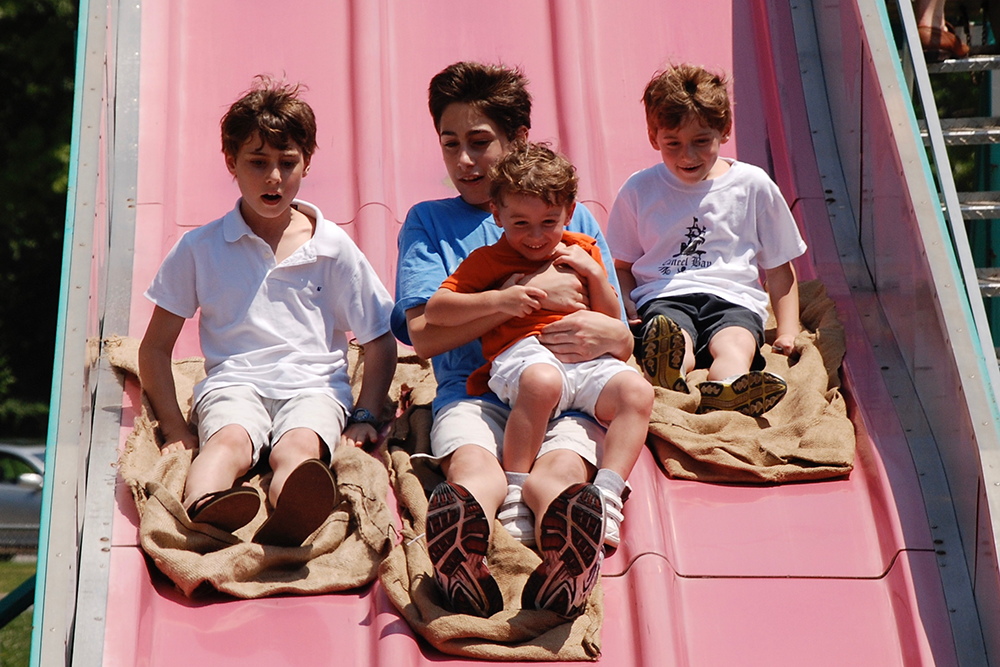
An Unexpected Journey
September 1, 2024
So Your Child is Neurodiverse… 5 Ways to Help Them Find Their Superpowers
November 11, 2024Naming Our Fears… And Finding Hope
By Carol S. Siege
Family Pathways Coaching, LLC
I remember that day so clearly. That phone call. The doctor’s diagnosis, my uncertainty. Sometimes people talk about feeling relief: Well, at least we know what we are dealing with, at least now we can understand and find solutions. But first there was fear, the fear of the unknown. And this was about my son and a special needs diagnosis, which made it even harder.
I’m the loving mom of four sons who all have been diagnosed with one or more special need, some more and some less challenging. All of these diagnoses have affected our sons individually and our family as a whole. None were more anxiety provoking, though, than the first.
Our son at the time was four years old, and beginning at age two, we had been searching for answers. We wondered why he always walked on his toes. We wondered why he had gone from an engaged and cheerful toddler to an angry and sometimes violent one. And why had his world seemed to have drawn in around him so fast and so soundly?
The answer, we ultimately learned, was Asperger’s Syndrome, a diagnosis that eventually morphed into Autism when the Asperger’s diagnosis was retired in 2013. Today my 26-year-old son lives independently and is working toward a career goal. Back then, we didn’t know what would be possible, and the first few years after his very early diagnosis were not promising. He struggled in school. He struggled with his peers. He struggled to regulate his body and his emotions. We fought with the schools. We fought as a family, and we fought with our son.
Along the way, our son was diagnosed with the co-morbid diagnoses of ADHD, OCD and dyslexia. His three brothers were ultimately diagnosed with ASD, ADHD, learning disabilities and anxiety. Our house went from raucous fun to disastrous mayhem at the flip of a switch, which required constant vigilance, playdates cut short, and life kept to a tight, well-regulated schedule. I felt alone. I grieved for the life I had anticipated, now so oddly different than what I was living.
Our family story started with that initial diagnosis; but it didn’t end there.

Though never traveling the typical path, our family is thriving today. My boys can’t wait to spend time together, and each one continues to move forward, constantly learning and growing. How did we get here? A lot of awareness, a lot of understanding, compassion, and time. Not to mention acceptance. Acceptance of changing expectations, acceptance of a different set of goals and timelines. Above all, a willingness to learn from our mistakes and to remind ourselves and each other: progress, not perfection.
When life overwhelms us, we may try the duck-and-cover route: keep our heads down and muscle through the days. But if we lift our heads just high enough, we may see a lifeline. Coaching can be that lifeline, a process to help you find answers that may already reside within you. A coach is a non-judgmental partner who can serve as a sounding board to help clear obstacles so we can move forward and find success. For a parent of a neurodiverse child, that may mean establishing a balanced life in and out of the home. It may mean quieting the chaos, creating harmony among siblings, or building bridges between spouses or extended family.
I am building a coaching business to help other parents of neurodiverse children face their own fears, learn to accept the challenges and the changed expectations that come along with those diagnoses and lived experiences. I have walked this road, too, and my own family adventure reminds me that there is always hope. Sharing my life also reminds me that I am not alone. And neither are you. Reach out, grab that lifeline, it’s there for you.



